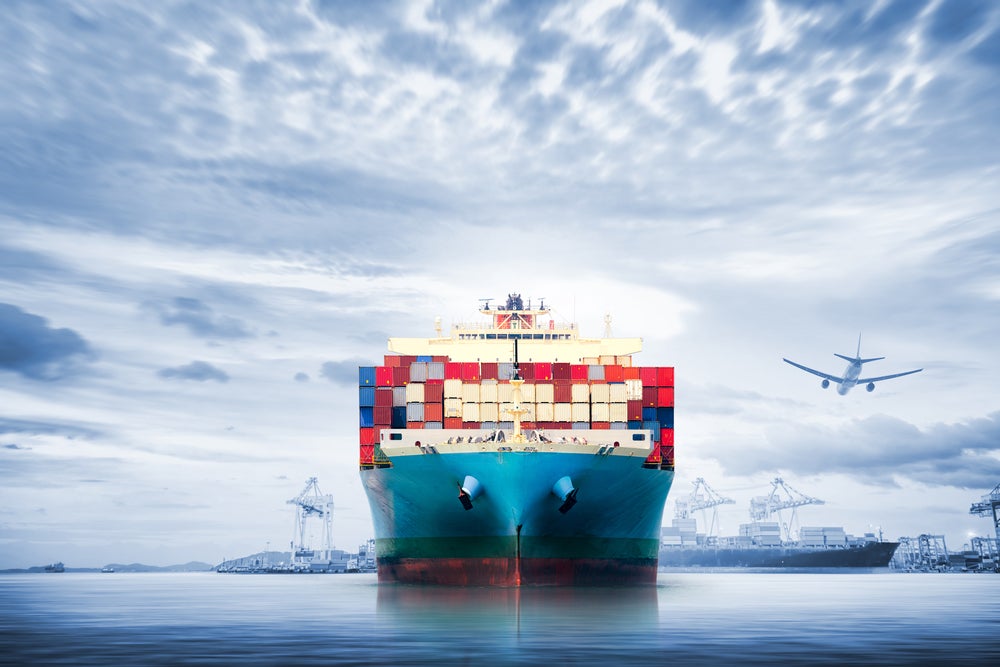
The pandemic made everything worse. Covid-19 shut down societies, killed millions of people and led to extensive logistical problems around the world. Everything from medicine to semiconductors was held up due to huge demand swings, ships being unable to unload or trucks having to queue for miles to cross borders. The result was that consumers suffered from empty shelves in grocery stores and businesses struggled to source supplies. As the contagion spread, the worse the logistical nightmare became.
“Probably the most notable feature of the current crisis is that it affected almost all supply chain segments, from container shipping lines and cargo terminals to trucking services and last-mile delivery providers,” Andrew J. Scott, founding partner of early-stage VC firm 7percent Ventures, tells Verdict.
However, the health and supply chain crisis empowered a small subset of startups to make out like bandits. As the contagion swept across the globe, wreaking havoc on supply chains and on people’s lives, a small subset of technology startups were busy successfully wooing investors.
The data revealing the extent supply chain startup funding
Venture capitalists have invested almost $7bn into the supply chain technology sector since 2018, according to data from analytics firm GlobalData. Of that, $2.46bn was raised by the sector in the past two years. That figure is bigger than the 24 deals worth a total of $180m raised in 2013. However, that’s still down from the peak of 2019 when 240 deals injected $2.99bn into the sector.
How well do you really know your competitors?
Access the most comprehensive Company Profiles on the market, powered by GlobalData. Save hours of research. Gain competitive edge.

Thank you!
Your download email will arrive shortly
Not ready to buy yet? Download a free sample
We are confident about the unique quality of our Company Profiles. However, we want you to make the most beneficial decision for your business, so we offer a free sample that you can download by submitting the below form
By GlobalDataPitchbook suggests the figure could be even higher, saying investors put $7.8bn into the sector in the last quarter of 2021 alone. While Pitchbook included funding raised grocery delivery companies like Gorillas, GlobalData doesn't seem to have included them in its definition of supply chain startups.
Instead of being bogged down by semantics, let's be clear that both definitions demonstrate how the pandemic benefited these startups. Investors have given new enterprises the resources they need to solve logistical bottlenecks using automation, artificial intelligence and internet-of-things solutions.
"The pandemic revealed multiple inefficiencies in supply chains across all major industries," Alexey Bulygin, associate business analyst at Sova VC, tells Verdict. "As a result, both VCs and corporate investors have turned their attention to tech startups aiming to solve these problems."
The trend seems to be maintaining its momentum into 2022. In January, freight technology startup Loadsmart became a freshly minted unicorn after bagging $200m in a Series D round at a $1.3bn valuation, supply chain startup Inspectorio landed a $50m Series B raise, and UK-based smart logistics startup 7bridges raised $17m in a Series A round.
Covid-19 disrupted supply chains
There's a rule of sorts when it comes to startups: the bigger the problem, the bigger the killing. And as problems go, the coronavirus was absolutely massive.
Covid-19 created considerable supply chain challenges. National lockdowns and travelling restrictions led to fewer people working on factory floors, in harbours, in warehouses and on the roads. Consequently, the flood of goods turned into a trickle.
It would be easy to blame the collapsed infrastructure solely on the coronavirus – some UK politicians certainly did. They put the responsibility for the backlog at the border at the contagion's figurative feet. However, the full picture is more complex.
Research by consultancy Grant Thornton also blamed the UK's Home Office, saying migration restrictions imposed as part of the Brexit process resulted in fewer EU workers being available to help unload containers.
Other macroeconomic events also contributed to supply chain woes. Worldwide market uncertainties have caused foreign exchange rates to fluctuate. This has put exporters' margins at risk if they usually buy and sell their wares in different currencies – dramatic changes on either side could affect them considerably.
Analysts have also identified the widely popular just-in-time model as another culprit. The management strategy was pioneered by Toyota in the 1970s. As the name suggests, businesses adopting the model try to structure supply lines so they receive goods just as they need them, cutting down on storage costs and making sure that money is not tied up in inventory.
The model's upside is that it cuts costs. The downside is its reliance on strong supply chains. The whole system easily collapses if one link breaks. That is basically what happened for several companies during the pandemic when businesses' highly complex global supply chains broke.
Business leaders have had migraines about all these factors for years. However, Covid-19 made them worse. No matter where you lay the blame, the fact of the matter is that businesses and their customers suffered from the health crisis. Seventy-two percent of companies have had a negative supply chain experience due to the pandemic, according to research from consultancy EY.
"The pandemic brought the very real pressures of supply chain complexity to the forefront of many business leaders’ minds," Philip Ashton, CEO and co-founder of 7bridges, tells Verdict. "The inefficient, outdated and siloed systems that many organisations had relied on for decades became a very real problem, because they were not able to adapt to such a rapidly changing environment."
The question is what happens when the pandemic finally comes to an end. Given these tech startups have massively benefited from the coronavirus health crisis, what happens now that people like Anthony Fauci, the chief medical adviser for President Biden, start to say that the "full-blown" phase of the pandemic is over?
What are the different supply chain startups doing?
Just as there is no single source behind the supply chain crisis – even though Sars-CoV-2 certainly accelerated the issues – supply chain startups are attacking the problems in more than one way.
One group maximises warehouse efficiencies with robots. A second segment helps business solve their environmental, social and governance (ESG) woes by enabling companies to track their carbon footprint. Then there are the companies that use blockchains to create transparency and those that work on enabling smoother cross-border transactions, helping companies find unused space in carriers or removing other inefficiencies.
Basically if you can name any logistical hurdle or bottleneck, then you can be sure there is a startup using technology to solve it.
Despite the many different types of technology-focused supply chain startup out there, the sector is still in its early stages. Only a fraction of the venture financing deals raised over the past decade have been worth over $50m, according to GlobalData's data.
"Supply chain technology is in its nascency," Camilla Dolan, partner at Eka Ventures, tells Verdict.
She notes that there are still plenty of opportunities in this sector as "the global logistics and supply chain industry is a $11tn industry growing at 5% CAGR a year" and quotes figures from Bessemer Venture Partners "estimating that the supply chain software market will increase from $25bn today to $50bn in 2028 and potentially $100bn by 2030."
What happens now that the pandemic is over?
The pandemic supercharged the growth of supply chain startups. Now some governments around the globe are winding down social restrictions, hopeful that an end to the chaos is in sight. Where does that leave the startups in the sector?
"I do not think there would be any major impact from an operational point of view," Clemente Theotokis, co-founder of digital freight platform Zeus Labs, tells Verdict. "The problems in supply chain existed well before the pandemic and will exist after the pandemic is over too. All the pandemic has been able to do is fast track the solutions and bring supply chain excellence to the forefront of every company."
Several of the market stakeholders Verdict has spoken with share that sentiment. True, the underlying problems of the sector won't go anywhere. However, that doesn't eliminate other threats to their venture capital cash flow. Investors and customers could, for instance, lose patience in these startups.
"Sectors that go through periods of transformation often encounter a phase where the exuberance around what is possible doesn’t keep pace with the reality," Dolan says. "In the supply chain space, it is possible that due to the complexity of global supply chains and the fragmentation of information it takes longer for the results of supply chain innovation to be realised and that during this period capital without long term conviction in the digitisation of supply chains comes out of the market."






